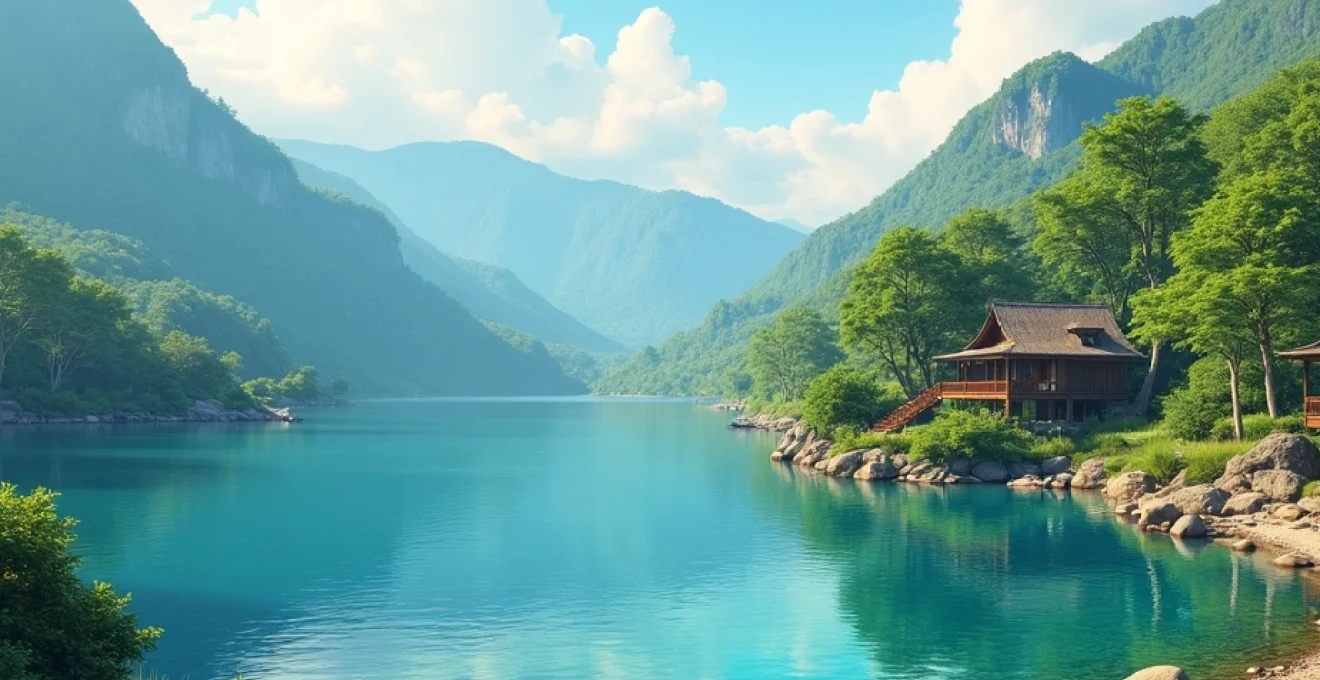
Exploring pristine natural environments while minimizing environmental impact has become increasingly important for conscious travelers. Ecotourism destinations offer unique opportunities to experience extraordinary biodiversity, support local conservation efforts, and contribute to sustainable development. From dense rainforests to vibrant coral reefs, these carefully managed locations provide unforgettable encounters with nature while ensuring its preservation for future generations.
Sustainable wildlife sanctuaries and national parks
Costa Rica's Monteverde cloud forest reserve: biodiversity hotspot
The Monteverde Cloud Forest Reserve stands as a testament to successful conservation, protecting over 2,500 plant species and a remarkable variety of wildlife. This pristine ecosystem offers visitors a chance to witness rare species like the resplendent quetzal and over 500 types of orchids. The reserve's canopy walkways and expert-guided tours provide intimate encounters with nature while maintaining strict environmental protocols.
Galapagos national park: endemic species protection
The Galapagos Islands represent one of earth's most unique laboratories of evolution. Strict visitor regulations and dedicated conservation programs protect the archipelago's extraordinary endemic species. Travelers can observe giant tortoises, marine iguanas, and Darwin's finches in their natural habitat while supporting crucial research and preservation efforts.
The Galapagos showcase nature's remarkable ability to adapt and evolve in isolation, offering visitors an unparalleled window into evolutionary processes.
Tanzania's Serengeti: migration corridor conservation
The Serengeti ecosystem presents one of nature's most spectacular displays - the annual wildebeest migration. Conservation efforts focus on preserving vital migration corridors while allowing visitors to witness this remarkable natural phenomenon. Sustainable safari operators employ local guides and support community conservation initiatives.
Great Barrier Reef marine park: coral ecosystem management
Australia's Great Barrier Reef demonstrates innovative approaches to marine conservation. Visitors can explore this underwater wonderland through carefully managed diving and snorkeling experiences while learning about coral restoration projects and climate change impacts.
Community-based ecotourism initiatives
Maasai mara cultural tourism projects
In Kenya's Maasai Mara, indigenous communities lead conservation efforts while sharing their traditional knowledge with visitors. These initiatives provide sustainable income sources for local people while protecting critical wildlife habitats. Authentic cultural exchanges occur through guided walks, traditional craft workshops, and community-owned eco-lodges.
Amazon rainforest indigenous guide programs
Indigenous-led tours in the Amazon offer unique insights into rainforest ecology and traditional stewardship practices. Local guides share generations of knowledge about medicinal plants, wildlife behavior, and sustainable resource management. These programs provide economic alternatives to deforestation while preserving cultural heritage.
Indigenous knowledge systems offer invaluable perspectives on sustainable ecosystem management and conservation practices.
Carbon-neutral adventure destinations
Iceland's geothermal exploration routes
Iceland leads in sustainable tourism through renewable energy utilization and careful landscape management. Visitors can explore geothermal areas, glaciers, and volcanic landscapes through carbon-neutral adventures. The country's commitment to environmental protection extends to innovative waste management and energy-efficient transportation options. The following table provides additional information:
| Activity | Environmental Impact | Sustainability Measures |
|---|---|---|
| Geothermal hiking | Minimal | Designated trails, group size limits |
| Glacier tours | Low | Electric vehicles, waste management |
| Northern lights viewing | Very low | Dark sky preservation, local guides |
Costa Rica's Zero-Emission adventure parks
Costa Rica's commitment to carbon neutrality extends to its adventure tourism sector. Parks utilize renewable energy, implement strict waste management protocols, and maintain biodiversity corridors. Activities like zip-lining and canopy walks minimize environmental impact while maximizing natural immersion.
Bhutan's carbon-negative trek circuits
Bhutan's unique approach to tourism emphasizes high value and low environmental impact. The country's carbon-negative status reflects comprehensive sustainability policies. Trekking routes incorporate traditional Buddhist principles of environmental stewardship while supporting local communities.
Marine conservation tourism sites
Palau's rock islands southern lagoon
Palau's marine protected areas demonstrate effective conservation through regulated tourism. Visitors must sign an eco-pledge and follow strict guidelines to protect coral reefs and marine life. The nation's innovative approaches include creating the world's first shark sanctuary and implementing sustainable fishing practices.
Maldives coral restoration projects
The Maldives combines luxury tourism with active marine conservation. Coral restoration programs allow visitors to participate in reef rehabilitation while learning about marine ecosystems. Resorts implement comprehensive sustainability measures including renewable energy use and waste reduction.
Philippines' Tubbataha reefs natural park
This UNESCO World Heritage site exemplifies successful marine protected area management. Strict access regulations and professional guide requirements ensure minimal impact on coral ecosystems. The park's management model demonstrates how tourism can support conservation through sustainable financing mechanisms.
Certified Eco-Lodges and retreats
Peru's Inkaterra Machu Picchu pueblo hotel
This pioneering eco-lodge combines luxury accommodations with scientific research and conservation. Native species restoration programs and organic agriculture demonstrate sustainable tourism practices. Visitors participate in biodiversity monitoring while enjoying world-class amenities.
Kenya's Campi ya Kanzi conservation lodge
This community-owned lodge represents excellence in sustainable tourism. Solar power systems and water conservation measures minimize environmental impact. The facility supports local conservation initiatives while providing authentic cultural experiences.
Australia's daintree ecolodge rainforest stay
Located in the world's oldest rainforest, this eco-lodge prioritizes minimal environmental impact. Careful building design and placement protect wildlife corridors while allowing intimate nature experiences. Indigenous cultural programs complement conservation activities.
Ecuador's Mashpi lodge cloud forest experience
This sophisticated research station and lodge demonstrates how luxury tourism can support scientific research. Innovative design features minimize forest impact while maximizing wildlife viewing opportunities. Ongoing research projects engage visitors in citizen science initiatives.